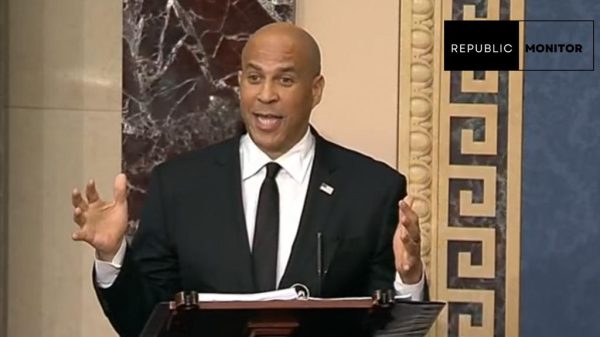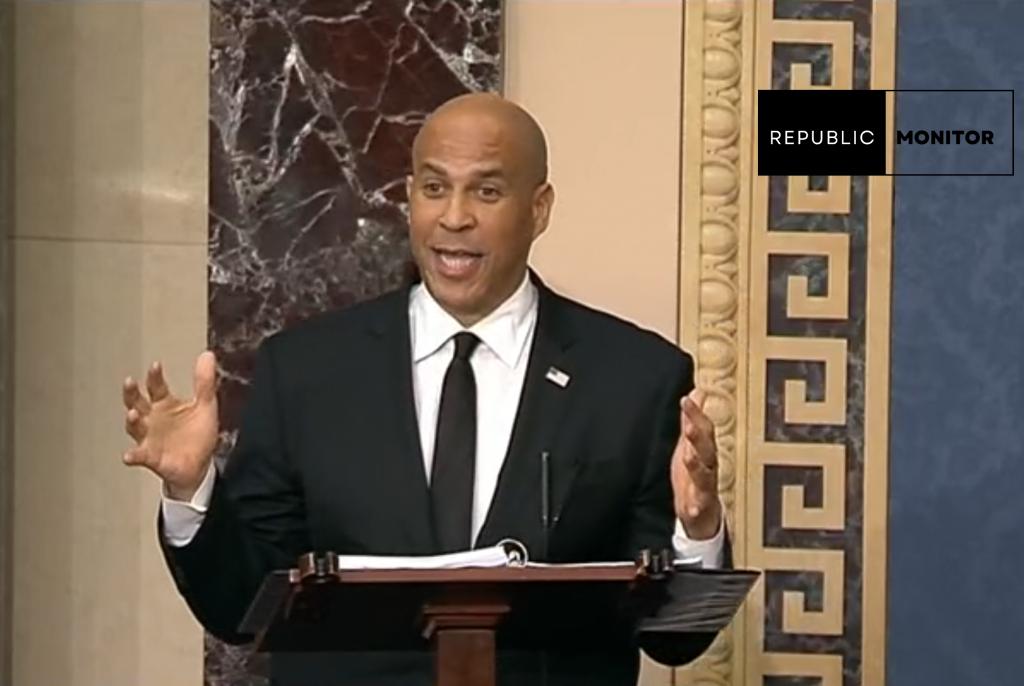Senator Cory Booker from New Jersey has taken to the Senate floor in what is expected to be a marathon speech against President Trump’s administration. Beginning late Monday evening, Booker’s speech is a vigorous protest meant to shine a spotlight on the impacts of Trump’s policies on American lives. The senator plans to speak as long as he can, intending to overshadow his own record from 2016 when he delivered a nearly 15-hour speech to address gun violence. By doing this, Booker is hopeful to generate nationwide attention towards his criticisms of Trump’s administration and its policies.
Senator Cory Booker Just Started Talking on the Senate Floor
Booker commenced his speech at 7:00 p.m., ready to take on the daunting task of speaking continuously. With a determined mindset, he asserts that he will continue speaking until he can no longer do so physically, signaling his commitment to this cause. During the address, he will tackle several key points, including concerns about American safety, financial hardships, and how these issues tie into the broader landscape of American democracy. His goal is to disrupt the usual proceedings of the Senate while emphasizing the pressing issues at hand.
It Isn’t the First Time That Booker Has Taken Over the Senate Floor for an Extended Period
This isn’t Booker’s first foray into long-winded speeches. In 2016, he participated in an exhausting 14-hour filibuster about gun violence, setting a high bar for future speeches. Similar to that event, he uses this speaking opportunity as a platform to express deep concerns regarding policies that he believes cause real harm to everyday Americans. This time, however, his focus also includes addressing Trump’s Republican tax proposal and its repercussions, as well as the administration’s approach to immigration and federal agencies.
The Tradition of Long Senate Speeches and Filibusters
The practice of lengthy speeches and filibusters has a rich and storied history in the United States Senate. While many of these speeches have been used to advocate for important causes, some have also been utilized to obstruct legislative progress for controversial or less noble reasons. The longest Senate filibuster on record belongs to Strom Thurmond, who spoke for over 24 hours back in 1957. While Booker may not be aiming to break that record, his intention is to draw significant attention and engage the public in a debate surrounding the current political climate.
Booker Plans to Use Letters from Constituents in His Presentation
During his marathon speech, Booker has also announced that he will incorporate letters from his constituents, highlighting real people and their struggles. This tactic not only personalizes his message but also emphasizes that the political decisions made in Washington have direct consequences on the lives of everyday Americans. Such a method has been effective in resonating with both colleagues and the public alike. Notably, he will have support during his delivery, as Senator Chris Murphy, a fellow Democrat, is expected to assist him by posing questions and engaging in the discussion.
Why Now?
This speech occurs in a context of widespread public dissent aimed at Trump’s administration. With numerous protests echoing nationwide, Booker aims to contribute to this effort from the Senate floor, making his own stand against policies he believes are unjust. Rather than being an act of civil disobedience, Booker frames this as a serious protest—a crucial moment in his ongoing battle to advocate for those he represents. By standing firm against what he terms as a threat to the country, he hopes not only to make a statement but spark a larger conversation among lawmakers and the public.
Booker’s Past Activism
In his career, Booker has been known for other acts of activism, which include hunger strikes, protests in tents, and even engaging in sit-ins with civil rights leader John Lewis. These actions have fostered a reputation of being unwavering in his commitments to social justice and equity. As he embarks on this new journey of speaking out, his previous experiences define his approach and resolve in confronting the issues at hand.
















